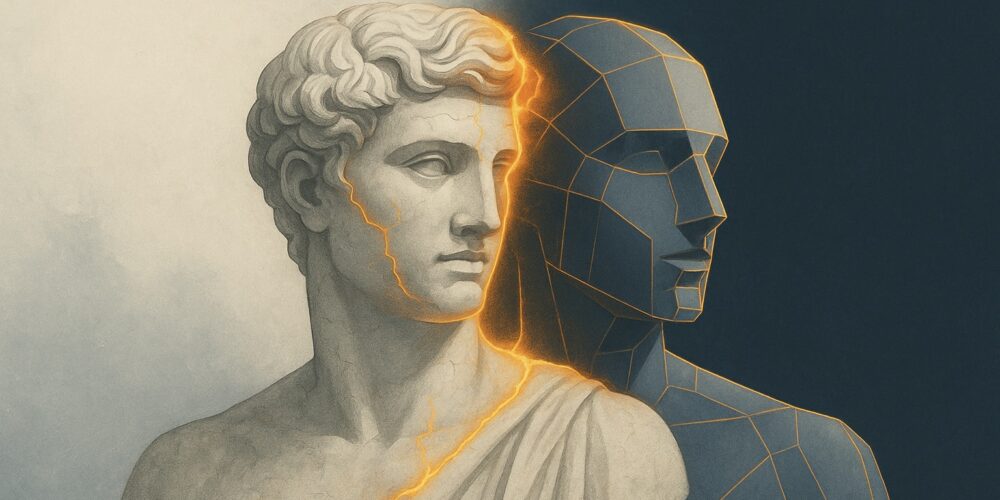To stay the same—change!

Today I want to introduce you to a gentleman called Tancredi Falconeri. He’s not a real person, but he uttered one of life’s enduring wisdoms. Tancredi is a character in Giuseppe Tomasi di Lampedusa’s novel, The Leopard. The novel came out before I was born, but it has great modern relevance.
I keep pointing this out to every CEO I advise: hardly any human being on this earth enjoys change! Most of us are creatures of habit. We become comfortable in our zones, and we often doggedly resist any alteration to our daily routines or established norms.
So before you run out evangelising “change is the only constant” and similar slogans, please pause. When you beat the drums of change, the first response of the listening humans is fear–especially those with much to lose. The people before you smile and nod, they look like they are on board with your change agenda, but inside they are worried—and they will resist.
And yet change we must! Today’s world punishes stagnation and complacency, brutally. The markets have no sympathy for incumbents who snooze. We’ve seen once-proud empires humbled overnight. The ground shifts daily beneath our feet; yesterday’s certainties are today’s museum pieces. Renewal is the only pact we can make with the future.
It’s a conundrum, but the character Tancredi shed some light. He said:
If we want things to stay as they are, things will have to change.
In other words, we must change just to preserve the status quo. It should be the credo of the smart incumbent: You change your form to keep your essence; you evolve fast enough to avoid being made extinct.
And so, you must become your own disruptor. Waiting is decay. Apple obsoleted its cherished iPod with the iPhone. Netflix killed DVD rentals to jump to streaming. Microsoft stopped putting walls around Windows, and sent it out onto multiple platforms. The change was the preservation.
But do note: not every act of change is equal. This is about real change, not the optical-only version. Too many are engaged in change theatre, where they mouth slogans and introduce innovation labs and tout ESG reports—while changing little at the core.
Individuals are not exempt from this law of renewal. The same forces that punish complacent companies punish stagnant lives. A career, a skillset, even a mindset that stands still is quietly being outpaced. Just as firms must disrupt their own models, individuals must be willing to disrupt their own habits.
That doesn’t mean frantic reinvention every week—it means carrying curiosity as a discipline, learning new tools before they’re forced upon you, and questioning routines before they ossify. A person who resists change becomes brittle; one who embraces it stays supple, relevant, alive.
The accountant who never learned to work with automation software is edged out by younger peers. The teacher who resists AI tools risks losing touch with how students learn today. The marketer who clings to print while the audience scrolls past them online is slowly fading into irrelevance. These are not dramatic collapses like Kodak or Nokia—they are quiet, invisible demotions happening in thousands of careers every day.
The alternative is deliberate self-disruption, by taking on new skills. Digital literacy, design thinking, and data fluency are now as basic as reading and writing. Emotional intelligence—knowing how to listen, empathize, and collaborate across cultures—is not a “soft” add-on but a core advantage. Adaptability and resilience are daily muscles to exercise, not occasional virtues. Systems thinking helps you see connections rather than fragments; storytelling helps you persuade and lead. Even a working grasp of AI—how to use it, when to trust it, when to doubt it—is rapidly becoming non-negotiable.
But wait: all this change is necessary, and yet I started by saying change is troublesome and anxiety-inducing? That’s where Tancredi’s insight earns its keep. Some change is the price we pay to prevent collapse; a smaller discomfort to avert a greater pain. We resist because change unsettles us, but the refusal to adapt unsettles us far more, only later, and more harshly.
Choose your change, before the world chooses it for you. We don’t change because we like it; we change because it’s the only way to keep what is worth preserving. Renewal is the bargain that lets us carry our essence forward, intact. To stay the same—change. Gently but resolutely.
THE SIGNAL IN THE NOISE
Renewal is not optional—it’s the toll we pay to travel safely into the future. Refuse it, and the world will extract a greater price later.

Buy Sunny Bindra's new book
The X in CX
here »
Popular Posts
- My books of the yearDecember 14, 2025
- Here’s why you should become foolishNovember 30, 2025
- Confessions of an explaining personDecember 7, 2025
- How to listen, really listenNovember 16, 2025
- Is AI hiring your company into oblivion?November 23, 2025















